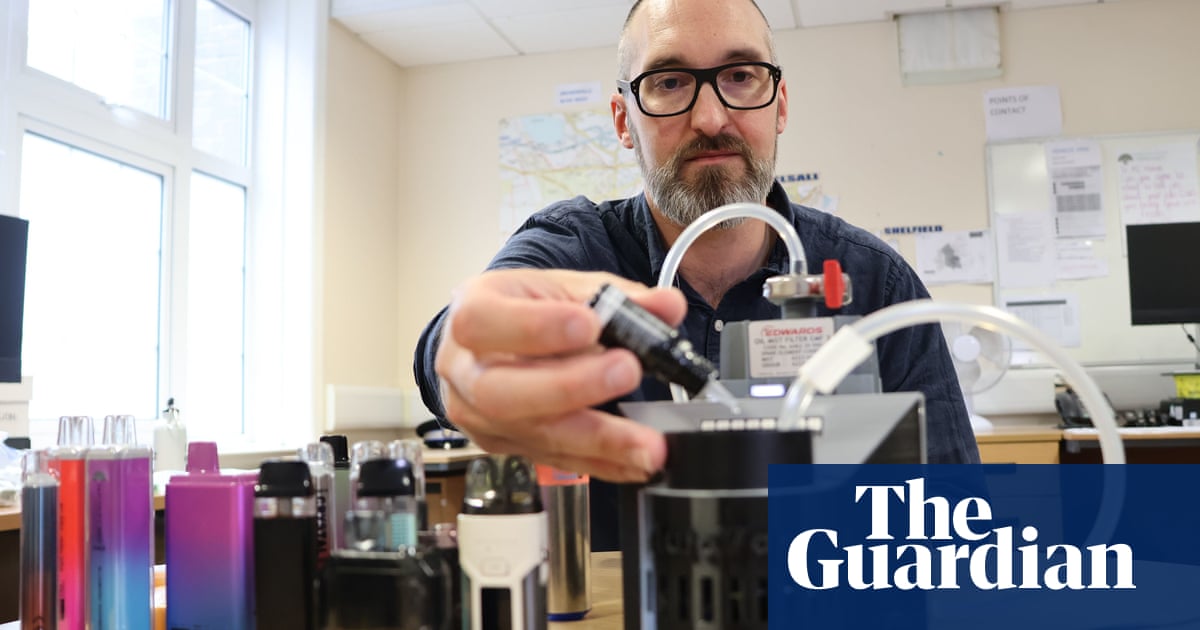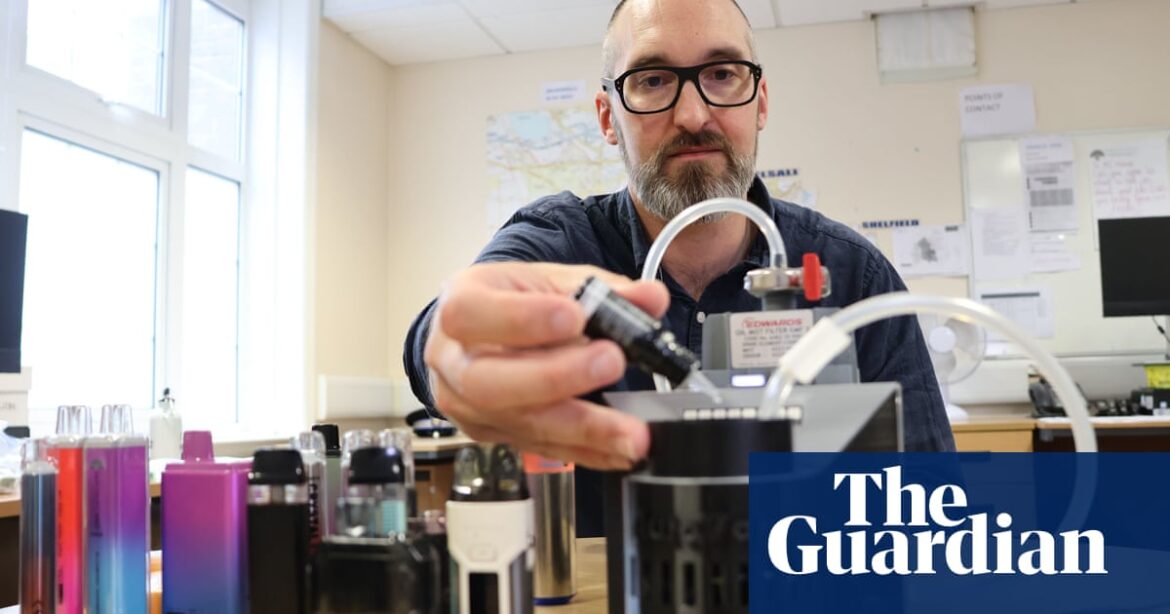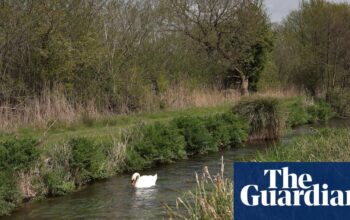
One in six vapes confiscated in English schools are spiked with the highly addictive “zombie drug” spice, according to research.
Analysis from 38 schools revealed that the synthetic street drug, classified as class B alongside ketamine and GHB, was in hundreds of devices. The researchers said they believed the substance was being put into vapes marketed as containing cannabis oil.
An investigation by the University of Bath tested 596 vapes confiscated in London, the West Midlands, Greater Manchester, and South Yorkshire, and found spice in at least one vape in 28 schools.
The drug, which can cause heart attacks, seizures and psychotic episodes, was found in 17% of vapes tested, while roughly one in 100 (1.17%) contained THC, the psychoactive component of cannabis. One vape tested contained trace elements of heroin.
Chris Pudney, professor of applied biochemistry at the University of Bath, who developed a portable device that instantly detects synthetic drugs and is used to test the vapes, said he was surprised how many vapes contained spice.
“What shocked me was that the percentages were so high, almost unbelievable. I was expecting a figure around 10 times lower. The vapes we tested were taken from pupils during a normal school day, not because teachers [thought] there were drugs in them but just because vapes are not allowed in schools.”
The tests also found that spice was predominantly added to refillable vapes, rather than disposable vapes.
The findings follow research published in June which found a sharp rise in vaping among teenagers.
Pudney said: “This is not just a niche, one-off, occurrence that happens in a school far away from you, this is something common. Teenagers think they are purchasing vapes or vape fluid containing THC or nicotine when, in fact, these are laced with spice.
“We know children can have cardiac arrests when they smoke spice, and I believe some have come quite close to death. Headteachers are telling me pupils are collapsing in the halls and ending up with long stays in intensive care.”
The study involved giving police forces Pudney’s testing device. Researchers also did tests on confiscated vapes on school premises.
Ben Davis, headteacher at St Ambrose Barlow RC high school, in Salford, who invited Pudney to test a batch of confiscated vapes at the school in July, said he had seen children under the influence of spice and that two children at his school had collapsed as a result, causing distress to staff, children and their families.
He added: “What do we do if it happens again and we’re unaware? What if it happens in a bathroom cubicle and they are alone? It would only be when they didn’t show up for class, were marked absent, and we started searching for them, potentially finding them too late. We’ve been fortunate so far but I believe it’s only a matter of time before serious injuries or fatalities occur.
“My message to families is, don’t assume your child is not involved. There’s a high chance they are, or they know someone who is. Please talk to them about it. Be open, non-judgmental and accepting. As soon as you judge or blame, barriers will go up and you won’t reach your child. This conversation is crucial for their safety.”
Chief inspector Sarah Johns, at Devon and Cornwall police, one of the forces using Pudney’s testing device, said: “Our clear message to all young people is that the risks associated with unregulated vapes are not worth it. Young people obtaining these fluids or being offered them will never be able to know for sure what’s in them and … if it’s spice then that could lead to serious harm.”
The government has been approached for comment.
Source: theguardian.com



